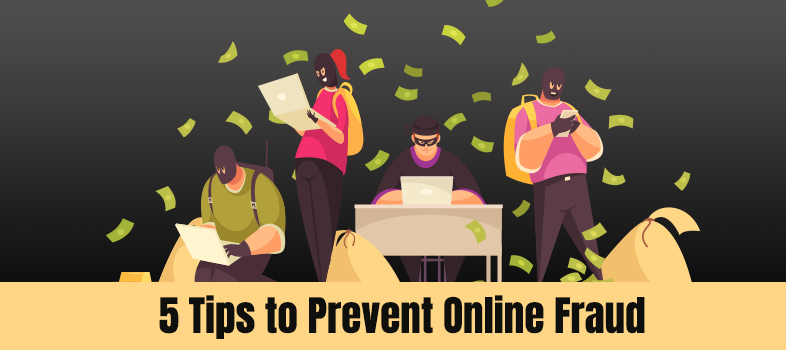Anyone who’s using digital media as means to the end will be posed openly to online fraud/cybercrime. So, it’s good to stay apprised of the types of online swindling to protect your money against mishandling.
With the onset of COVID-19 pandemic, digital payments have been hugely brought to use. This has been true because of restricted public movement and bank closure. The need to adopt digital payments has been almost unavoidable.
Digital payment methods like credit cards, net banking and mobile applications can be conveniently used to pay utility bills, shop for fashion items, groceries, pay school & tuition fees, tv subscriptions etc. So, as the number of digital transactions rise, the risk for online fraud rises too.
Here are some 5 practical tips that will help you to protect your personal information from online frauds:
1. Use Strong Passwords or PINs
Always use strong passwords, patterns or PINs to protect your mobile phone. When you are not using your mobile phone, do make sure to lock it. For more security, you can use the 2FA (Two Factor Authentication) process to secure your mobile phone from hackers.
2. Don’t Download Random Apps
Before downloading any random app from a company which are not commonly known to you, do a quick web search for detailed information to make sure it’s reputable. Recheck the app developer, reviews and ratings before starting using it.
3. Never Share Personal Details
Cyber criminals are constantly looking for opportunities to make easy money. The stay of coronavirus has influenced the wrong doers to take advantage of the increased online traffic & use in the best interests. They are extensively using social engineering to trick people into sharing their account or credit card details, which are then used for fraudulent transactions. A fraudster just needs information about your key credit card details & make all possible digital payments, as and when he wishes. This is known to be card related fraudulent activities.
To save yourself against this kind of fraud, refrain from sharing your credit & debit details with anyone unknown. There have been cases where cyber criminals have teased and tricked innocent online users misusing their account details.
These crime masters use the system to steal the users confidential information & make their spending. They act as the representatives of the real users. As imposers, they apply for enhanced credit limits or lucrative offers and lash out all important details. So, be extra cautious while sharing your card details, email or residential address. Cyber criminals very wisely use information about the user account.
4. No Phishing Allowed
Never click on attachments or links received through unknown email unless you are pretty sure about it and only open emails, links, and attachments only from trustworthy sources. Secure your personal information on computer with good anti-virus software and firewalls. You can also deploy a spam filter that detects viruses and develop a security policy that includes to password expiration and complexity.
5. Keep Your Passwords Secret
When creating unbreachable passwords, choose a combo of symbols, numbers and uppercase and lowercase letters that has a meaning only to you. Do not share your password with anyone and change your passwords regularly for better protection. Street addresses, anniversary dates, Birthdays, phone digits, pet names, social security numbers are all weak choices.
Stay alert as you can be enhance your online experience
You know how convenient digital payments can be to make payment and transfer funds from every possible location. So, a little alertness can pay you well to protect against money frauds & lender safer experience altogether.

